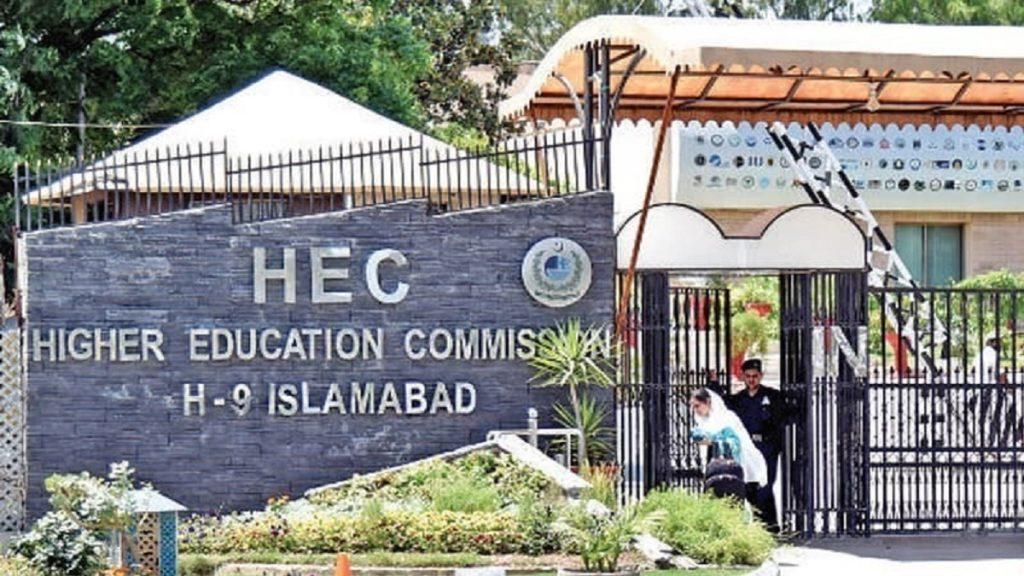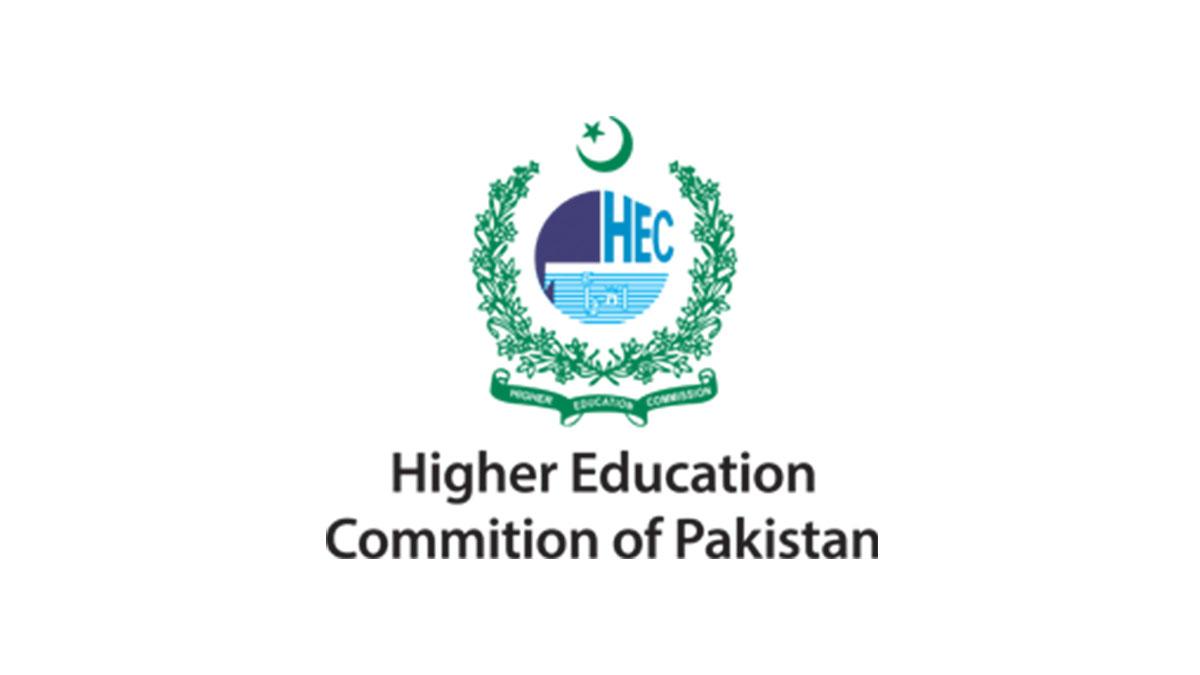The Higher Education Commission (HEC) of Pakistan was established in 2002 as an independent and autonomous institution. Its mission is to promote and develop the higher education system in the country. The HEC has a wide range of responsibilities, including quality assurance, accreditation, foreign scholarships, and research funding. We will look at when the Higher Education Commission was first established in Pakistan.
Introduction to the Higher Education Commission (HEC)
Of Pakistan
The Higher Education Commission (HEC) of Pakistan is a governing body responsible for the regulation and promotion of higher education in the country. Established in 2002, the HEC aims to improve the quality of education, enhance research capabilities, and ensure the development of a skilled workforce in Pakistan. The commission has played a crucial role in the transformation of the higher education sector, facilitating access to quality education and promoting research and innovation.
The HEC focuses on several key areas, including curriculum development, faculty development, infrastructure enhancement, and quality assurance. It has introduced various initiatives and programs to support universities and colleges across Pakistan, such as the Indigenous Ph.D. Fellowship Program, the National Research Program for Universities, and the Faculty Development Program.
Through these initiatives, the HEC has encouraged research and development activities, provided scholarships to deserving students. And supported faculty members in pursuing higher education qualifications. Additionally, the HEC has established quality assurance mechanisms, such as accreditation processes and ranking systems, to ensure that universities maintain international standards.
Overall, the Higher Education Commission has significantly contributed to the advancement of higher education in Pakistan. It has brought about positive changes in curriculum, infrastructure, research capabilities, and teaching standards. However, challenges such as financial constraints and infrastructure limitations continue to pose hurdles for the commission. As the country continues to progress, the HEC is expected to adapt to emerging trends and priorities, ensuring the continual growth and development of higher education in Pakistan.
Historical Background: Origins and Need for the HEC
The Higher Education Commission (HEC) of Pakistan was established in 2002 as an autonomous regulatory body responsible for overseeing and promoting higher education in the country. However, the need for such an organization had been recognized much earlier.
Before the establishment of the HEC, higher education in Pakistan was primarily overseen by various governmental bodies with limited coordination and coherence. This led to fragmentation, inconsistency, and a lack of quality standards across different institutions.
Recognizing the need for a unified regulatory body, the government of Pakistan embarked on a comprehensive reform agenda in the early 2000s. The aim was to revitalize the higher education sector and bring it to par with international standards.
Thus, the Higher Education Commission of Pakistan was formed with the vision to promote and enhance the quality of higher education, both in terms of teaching and research. It was tasked with developing policies, providing funding, ensuring accreditation, and fostering collaboration with national and international institutions.
The establishment of the HEC marked a significant turning point in Pakistan’s higher education sector. It brought about a more streamlined and coordinated approach to the development of universities and research institutions. It also aimed to address the brain drain issue by encouraging scholars and researchers to stay in the country and contribute to its development.
Overall, the origins of the HEC can be traced back to the need for a centralized body that would prioritize and uplift the quality of higher education in Pakistan, aligning it with global standards.
Key Milestones: Timeline of the HEC’s Establishment and Evolution
The establishment of the Higher Education Commission (HEC) in Pakistan can be traced back to the year 2002. In response to the growing need for a centralized body to oversee and regulate the higher education sector in the country, the government took the visionary step of setting up the HEC. This marked a significant turning point in the history of education in Pakistan.
Since its inception, the HEC has undergone several milestones and evolutions. In the early years, the HEC focused on reforming the higher education system, with an emphasis on quality enhancement and faculty development. It established several programs and initiatives to promote research and innovation in universities and to bridge the gap between academia and industry.
Over the years, the HEC has achieved several significant milestones. In 2006, it introduced the Quality Assurance Agency to ensure the quality of higher education institutions. In 2010, it launched the Indigenous Ph.D. Fellowship Program to encourage doctoral studies in various fields. In 2012, it established the National Research Program for Universities to promote research in universities across the country.
The HEC’s evolution has also been marked by various challenges and achievements. It has faced criticism and scrutiny regarding its funding allocation and decision-making processes. However, it has also received accolades for its efforts in improving the standard of education and research in Pakistan.
As the HEC continues to evolve, it remains committed to its vision of transforming Pakistan into a knowledge-based economy. With its initiatives and programs, the HEC is playing a pivotal role in shaping the future of higher education in the country.
Impact of the HEC: Advancements in Higher Education Sector
Since its establishment, the Higher Education Commission of Pakistan (HEC) has played a significant role in transforming the higher education sector of the country. The HEC has been instrumental in the establishment of new universities, improving existing ones, and ensuring the provision of quality education across Pakistan.
One of the significant impacts of the HEC has been the creation of a culture of research and innovation in higher education institutions. The HEC has introduced several initiatives and programs to promote research and development, resulting in increased publications, patents, and innovative products. The HEC’s Quality Assurance and Accreditation program has also been a crucial step towards ensuring that the degrees awarded by universities are recognized both nationally and internationally.
Furthermore, the HEC has taken several initiatives to improve access to education, particularly for disadvantaged communities. These initiatives include scholarships, and increasing the number of universities in underdeveloped regions. As a result, the number of students enrolled in higher education has increased significantly over the years. And if you are looking for best home tutor services then LACAS home tutors is best option for you.
Overall, the HEC has played a critical role in improving the higher education sector in Pakistan. While challenges remain, such as inadequate funding and outdated curriculum, the HEC has made significant achievements, and its contributions to the country’s development cannot be overlooked.
Challenges and Achievements: Assessing the HEC’s Journey
The establishment of the Higher Education Commission of Pakistan was not without its challenges. One of the biggest challenges faced by the HEC was resistance from universities, who were hesitant to cede their autonomy to a centralized regulatory body. The HEC also faced resistance from various stakeholders who were skeptical of the HEC’s ability to reform the higher education sector in Pakistan.
However, despite these challenges, the HEC has made significant achievements over the years. It has played a pivotal role in revamping the higher education sector in Pakistan, improving the quality of education, promoting research, and fostering innovation. The HEC’s efforts have increased the number of universities and colleges in Pakistan, as well as an increase in the number of PhDs and research publications.
Moreover, the HEC has introduced several initiatives and programs aimed at promoting research and development, such as the National Research Program for Universities (NRPU) and the Technology Development Fund (TDF). These initiatives have encouraged researchers and innovators to pursue new ideas and bring their research to the market.
Despite the challenges faced by the HEC, its achievements over the years have been significant. The HEC’s journey has been one of constant evolution, as it adapts to new challenges and emerging trends in the higher education sector. The HEC remains committed to promoting quality education, research, and innovation in Pakistan, and is continuously striving to achieve new milestones.
Role of the HEC in Quality Assurance and Accreditation
The Higher Education Commission of Pakistan (HEC) is responsible for ensuring quality assurance and accreditation of higher education institutions in the country. The HEC has established a comprehensive quality assurance framework that includes institutional accreditation, program accreditation, and teacher training. Accreditation is mandatory for all universities and degree-awarding institutions, ensuring that they meet the minimum quality standards set by the HEC.
The HEC has also established a National Qualification Framework (NQF) that defines the level, type, and quality of education and training in the country. The NQF helps ensure consistency and compatibility across different education systems, facilitating student mobility and recognition of qualifications. The HEC also oversees the development and implementation of curriculum and course material, ensuring that they are up-to-date, relevant, and of high quality.
Overall, the HEC plays a crucial role in ensuring that Pakistan’s higher education system meets the needs of its students and society. The HEC’s efforts to improve quality assurance and accreditation have helped promote transparency, accountability, and credibility in the education system. Students seeking home tutor services or looking for a home tutor in Islamabad can also get benefit from these tutors.

Initiatives and Programs: Promoting Research, Innovation, and Development
The Higher Education Commission of Pakistan has initiated several programs to promote research, innovation, and development in the country. These initiatives are aimed at improving the quality of education and enhancing research capabilities. And facilitating the development of innovative solutions to the country’s challenges.
The National Research Program for Universities (NRPU) is one such initiative that provides funding to universities to conduct research in various fields. Similarly, the Technology Development Fund (TDF) provides funding for research and development projects that can be commercialized.
Another program, the Innovation Fellowship Program, is designed to support and train young innovators and entrepreneurs. The program provides mentorship, training, and financial support to innovators, helping them turn their ideas into commercially viable products or services.
In addition, the HEC has launched several initiatives to encourage the use of technology in education. For example, the HEC has partnered with various organizations to provide online learning resources, including video lectures, course materials, and interactive learning tools. Also home tutor services like a home tutor in Lahore to provide quality education across the country.
Overall, these initiatives and programs are critical to improving the quality of education, fostering innovation and development, and driving progress in Pakistan. The HEC’s continued commitment to these efforts will be vital in ensuring the country’s long-term success and prosperity.
Future of the HEC: Emerging Trends and Priorities
As we look toward the future of the Higher Education Commission (HEC) in Pakistan, several emerging trends and priorities are becoming apparent. One key area of focus is the expansion and improvement of access to higher education across the country. The HEC is striving to increase enrollment rates and ensure that students from all regions have equal education opportunities.
Another important priority is the promotion of research, innovation, and development. The HEC recognizes the importance of fostering a culture of research in higher education institutions and is investing in initiatives and programs to encourage and support academic research.
Additionally, the HEC is working towards strengthening the quality assurance and accreditation processes in Pakistan’s higher education sector. Ensuring that institutions meet certain standards of excellence is crucial for maintaining the reputation and competitiveness of Pakistani universities.
In terms of emerging trends, the HEC is also exploring the potential of online education and distance learning. With the advancement of technology, online platforms and virtual classrooms can provide access to education for students who may not have the means to attend traditional brick-and-mortar institutions.
Furthermore, home tutor services, such as home tutors in Karachi and home tutors in Islamabad. These services aim to provide personalized assistance and guidance to students in their own homes, complementing their formal education and enhancing their learning experience.











